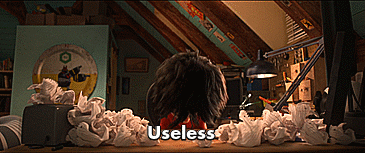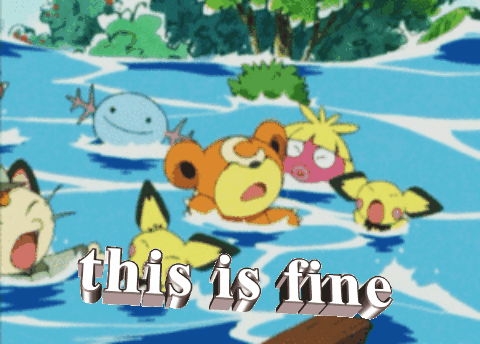
Writer’s block. The foul dust that floats in the wake of my dreams, the joy-sucking parasite that pings my career back to square one like a bungee rope… As a content creator, writer’s block is the barrier I’ve had to hurdle time and again without respite. Even as a student, there was no escaping it.
We’ve all been there, haven’t we? You hold down the backspace key for an eternity. You ball up another piece of paper, Steph Curry it into the wastebasket and draw for yet another clean slate. We all think a fresh start will help ideas flow more freely, but we’re wrong. This is my 5th attempt at writing this very introduction.

But as I prepared to surrender myself to the abyss, consummate in the belief that if I can’t write articles I no longer have any purpose in life, I came across this Guardian column by psychology writer Oliver Burkeman. And it seems that the greatest trick that writer’s block ever pulled was convincing us that it really exists.
The best way to beat writer’s block is to tell yourself you don’t have it

No kidding, denial isn’t just a river in Egypt. In the piece, Burkeman explains renowned psychologist Paul Sylvia’s take on the whole thing. That essentially, writer’s block is nothing more than “a description masquerading as an explanation.”
What does that mean exactly? Well, really it means that writer’s block is all in your head. See, when you give a name to a feeling like so-called ‘writer’s block’, you give that feeling what Sylvia describes as ‘object power’. It becomes a solid obstacle that needs agency to overcome as opposed to what it really is: a momentary lapse in creativity that will eventually pass.
“People can overthink themselves into deep dark corners, and writer’s block is a good example,” Sylvia says. Hence why it’s important to not get caught up in the semantics of it all. Here’s just a few of the ways you can beat that feeling.
- Step away. When you run out of ideas, it’s so tempting to sit staring at your laptop or notebook, mouth agape, waiting for something genius to come along and fish-slap you in the face. It’s actually much better if you let your mind wander away from the task at hand. That’s when the good ideas strike.
- Read something. Stimulate your brain with words by reading something, ideally something that has nothing to do with what you’re writing about. You never know which word is gonna set off an unstoppable train of thought down Brain Funk Railroad. If you prefer film dialogue or song lyrics instead, be our guest.
- Write down all your mind trash. Got an idea of what to write but just can’t find the right words? Try adopting Anne Lamott’s eloquently named ‘Sh*tty First Drafts Method‘. Write down everything that pops into your head, no matter how formless or nonsensical. You can always edit it down later and there might be some gems among your mental diarrhoea.
And importantly, never feel like you’re doing this because you have ‘writer’s block’. What that really is, is you just not writing. All it takes is for you to be in the right mental space. Trust me, it’s all in the mind.
Download Debut and connect with us on Facebook, Twitter, and L


